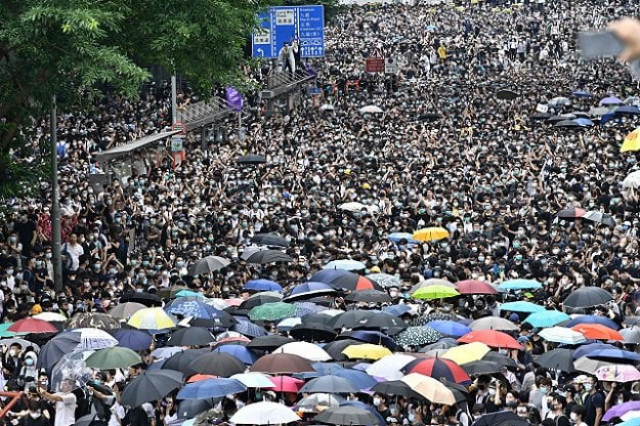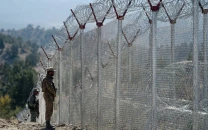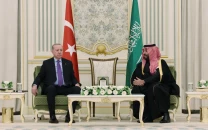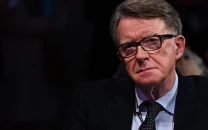The tough choices for China over Hong Kong unrest
The protests were triggered by opposition to a planned law that would have allowed extraditions to mainland China

The past two weekends have seen a surge in violence used by both protesters and police, who have repeatedly fired rubber bullets and tear gas to disperse projectile-throwing crowds. PHOTO: AFP
The protesters have shown no signs of backing down, despite increasingly violent confrontations in which Hong Kong's police have regularly fired tear gas and rubber bullets.
The protests were triggered by opposition to a planned law that would have allowed extraditions to mainland China, then evolved into a wider movement for democratic reform and a halt to eroding freedoms.
Hong Kong leader says city on brink as protesters unleash travel chaos
Here are the potential options for the central government as it seeks to end the crisis, and the problems associated with each:
Beijing's current approach has been to express firm public support for the Hong Kong police and the city's chief executive, Carrie Lam, while warning the protesters their actions are "intolerable".
"Beijing has adopted an intimidation strategy and is trying to wait it out until at least early September when (school) term starts, many protesters are high school and university students," said Hong Kong-based political analyst Dixon Sing.
The party is also preparing for the 70th anniversary of the founding of modern China, and is unlikely to want to take antagonistic steps ahead of that.
The wait-and-see approach is similar to how it approached the 2014 pro-democracy "Umbrella Movement" in Hong Kong.
The 2014 events saw protesters occupy parts of the city for more than two months but faded away without winning concessions from Beijing after key leaders were arrested.
But this may not be enough.
By waiting, it risks further embarrassment for a government led by Chinese President Xi Jinping that tolerates no dissent.
"The protests in Hong Kong are a serious loss of face for Beijing, and presents a key political and strategic dilemma for the Chinese authorities, do we intervene, when, and how," said Michael Raska, assistant professor at the S. Rajaratnam School of International Studies in Singapore.
Beijing could pressure Hong Kong's government into adopting a more concilliatory tone and finding some way to compromise with the protesters.
Their demands include an independent inquiry into police methods and the permanent shelving of the extradition bill.
The government could also orchestrate Lam's resignation, another key demand of the protesters.
"Lam has become a colossal political liability both locally and internationally," said Sing.
However, doing so would be seen to be giving in to the protesters and rewarding their actions.
"The likelihood of Beijing adopting non-violent, concilliatory measures is low," Hong Kong-based political analyst Willy Lam said.
The central government could step up its pressure and intimidation tactics against the protesters.
There has already been increasingly strident condemnation from authorities and state media.
The Chinese military last week described the unrest as "intolerable" and released a slick propaganda video showing a drill of armed troops quelling a protest in Hong Kong.
"At this stage, (Chinese president Xi Jinping) is gravitating towards a more hardline stance," Lam said.
But if Beijing does not plan to carry out such threats, then there is a risk of needlessly causing further panic. This could trigger a flow of money and companies out of the global financial hub.
The most dramatic, and risky, strategy for the central government would be to send in military reinforcements.
There is already a garrison of thousands of troops from the People's Liberation Army (PLA) stationed in Hong Kong, though they generally keep a low profile.
US senators propose law for annual certification of Hong Kong autonomy
While Hong Kong's law states PLA troops "shall not interfere in the local affairs of the region", it also says they can be deployed to "maintain public order".
But this last resort could spell financial disaster for Hong Kong and wholesale global condemnation for the Chinese Communist Party.
"It would seriously undermine the political legitimacy of Xi Jinping and the CCP, both internally as well as externally, with widespread international condemnation reminiscent of the 1989 suppression of Tiananmen Square protests," said Raska.



















COMMENTS
Comments are moderated and generally will be posted if they are on-topic and not abusive.
For more information, please see our Comments FAQ